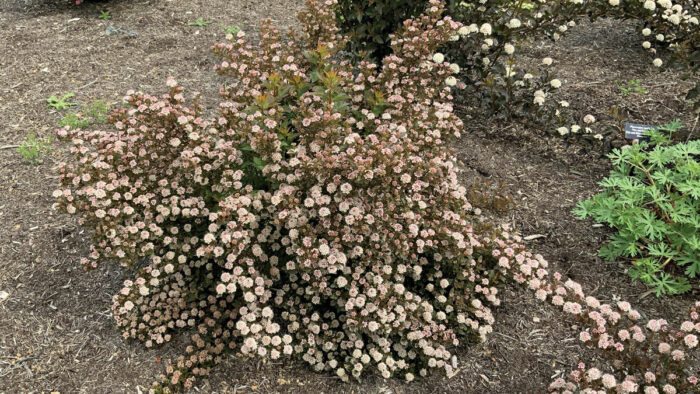
The compact ninebarks intrigue me—their reduced sizes and refined habits are made for small urban gardens like mine. And they challenge the notion that ninebarks are all coarse or tangled shrubs. The exceptionally small foliage of Sweet Cherry Tea™ starts out bronze-green and turns bright burgundy; the leaves have a lovely red hue that I do not see on other purple varieties in summer. By fall, red leaves are dotted throughout the burgundy crown. Unexpectedly, Sweet Cherry Tea™ reblooms in midsummer—and not a smattering of flowers here and there but a flower cluster on every tip.
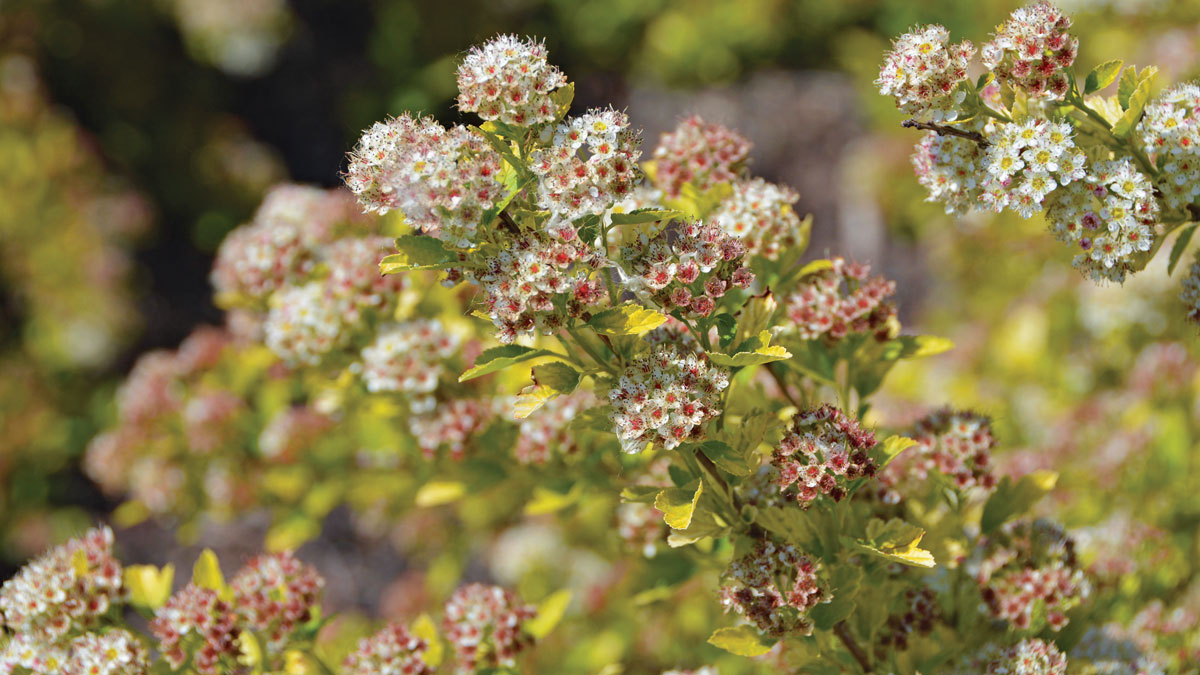
Raspberry Lemonade™ comes from the same breeder as Sweet Cherry Tea™, so there is a natural resemblance. While expected to be of a similar mature size, Raspberry Lemonade™ is so far showing a significantly broader habit—32 inches tall and 74 inches wide. The broad, slightly arching habit is well-branched and more refined than that of larger cultivars. Golden green leaves fade to green with a golden tint as days turn warmer; the coppery yellow overlay on terminal leaves deepens as fall comes on. White flower clusters sprout from the end of every branch in spring, followed by dangling coral-red fruits. An early fall rebloom was a delightful surprise. The small leaves are densely borne on slender pinkish red twigs, and the exfoliating tan and gray bark looks almost white after the leaves drop.
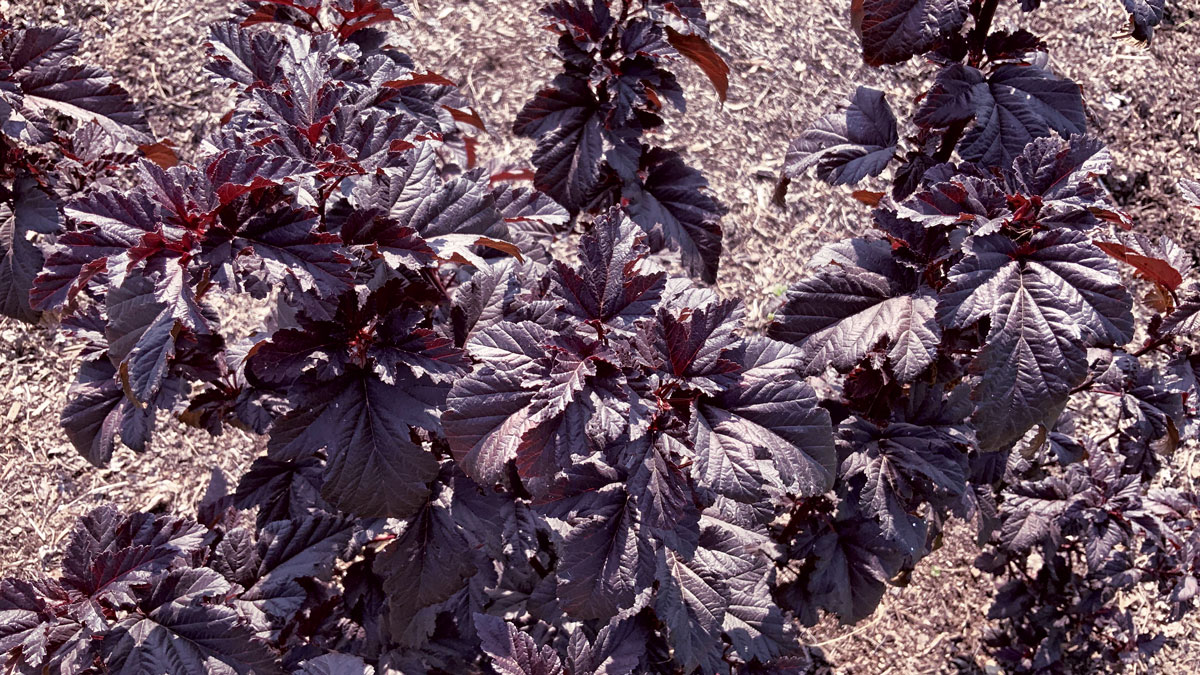
If purple is your color, you will love Panther®. The large, black-burgundy leaves hold their intense color all summer; even the twigs are deep burgundy, and the atypically pink flowers accentuate the dark features. While not exactly a patent-leather shine, the leaves do gleam. Red accents develop as days shorten, although burgundy remains dominant. Winter twigs of deep mahogany partner splendidly with the pale white-gray of older wood. Panther® has a unique columnar habit that brings height to tight spaces without the unwelcome girth.
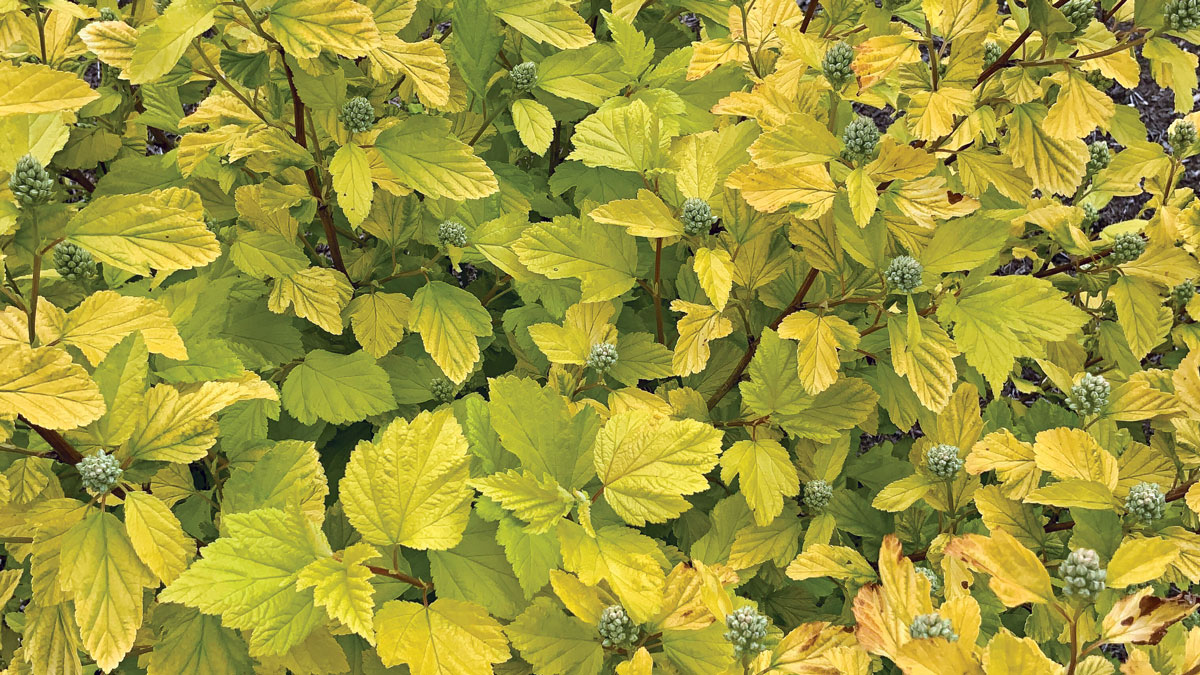
Canary Cheers™ is a paler version of ‘Dart’s Gold’ but is no less a beauty. The bright yellow-green spring leaves mellow to a deeper shade in summer and are suffused with light peachy orange and a touch of bronze in fall. Reddish twigs add to the summer show and turn dark tawny above distinctly near-white bark in winter. Canary Cheers™ has a robust rounded habit—to 6 feet tall with arching stems—with fewer internal branches than compact ninebarks. The pink and white flowers combined with the fresh yellow-and-green leaves heighten the springtime Easter-basket vibe.
See more
The Best Ninebark Shrubs for the Garden
How to Grow and Care for Ninebark Shrubs
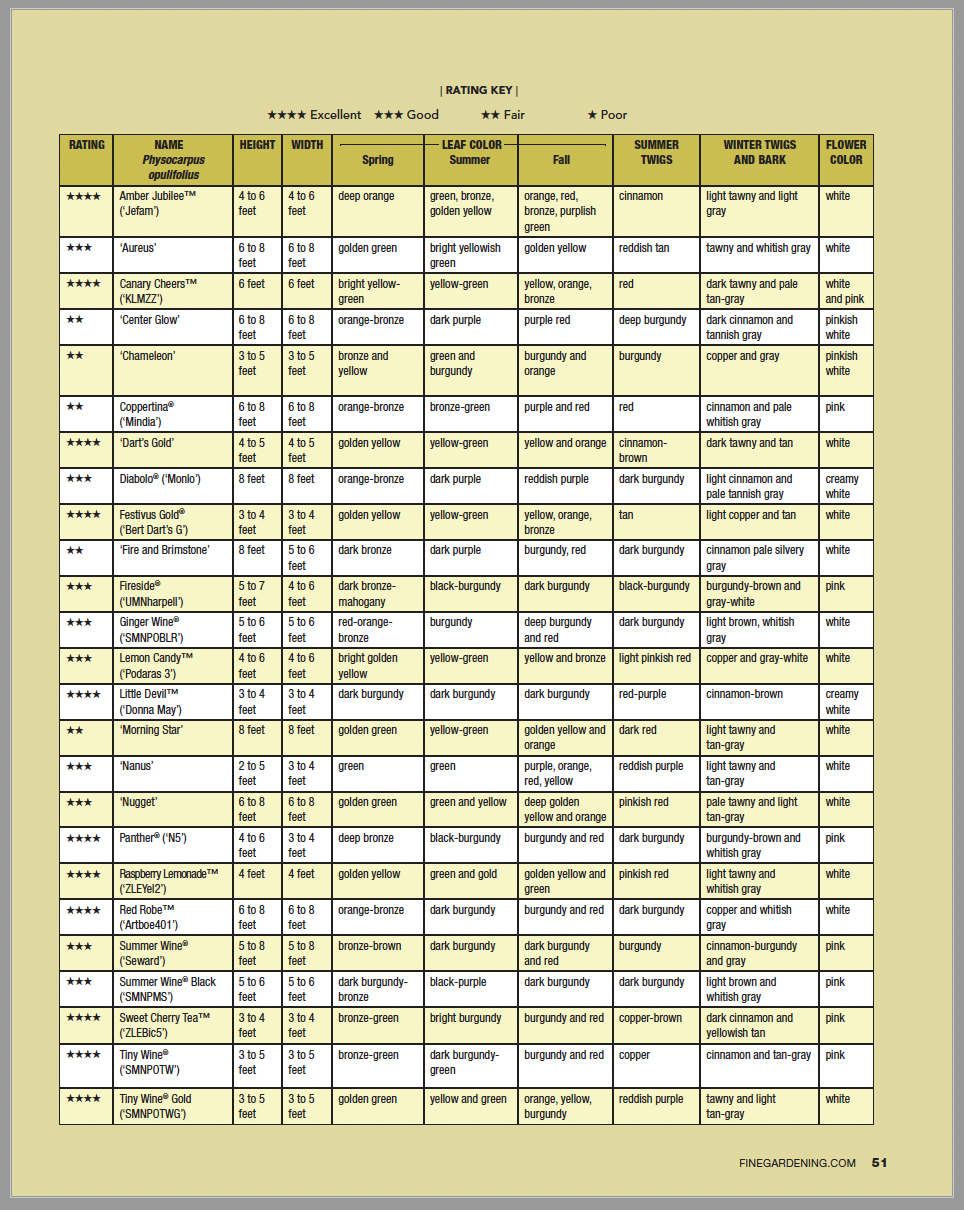
Richard Hawke is plant evaluation manager at the Chicago Botanic Garden in Glencoe, Illinois.
To read the ninebark rating key, please click here.

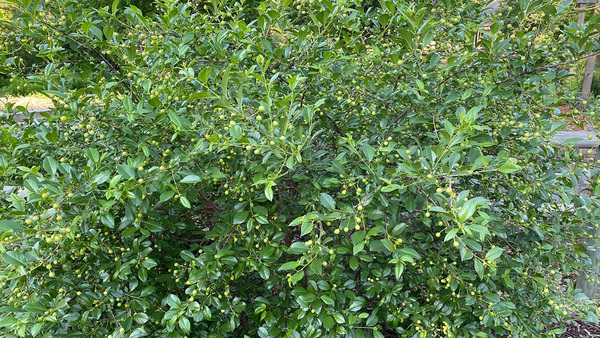


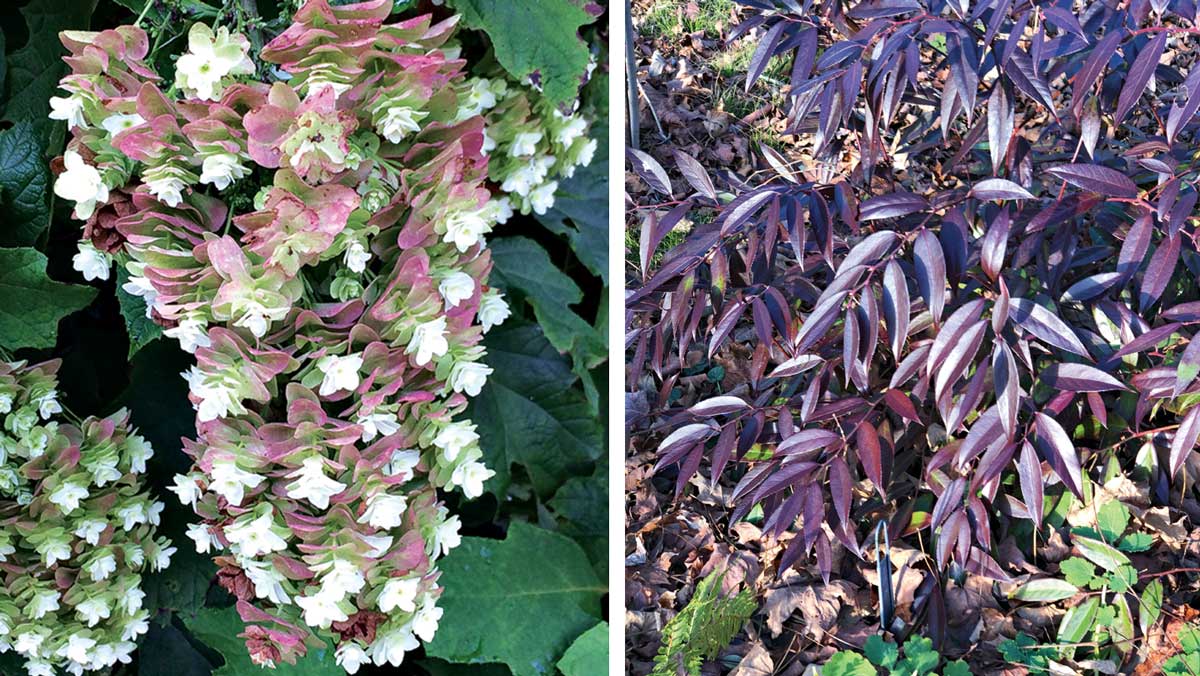
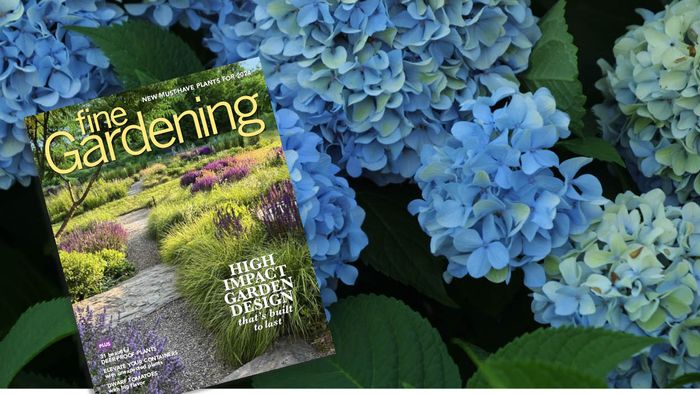
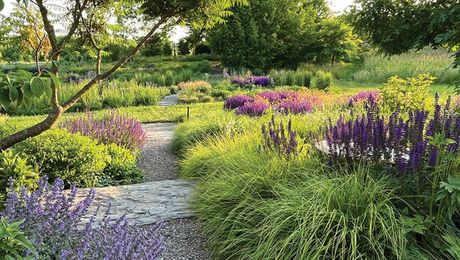




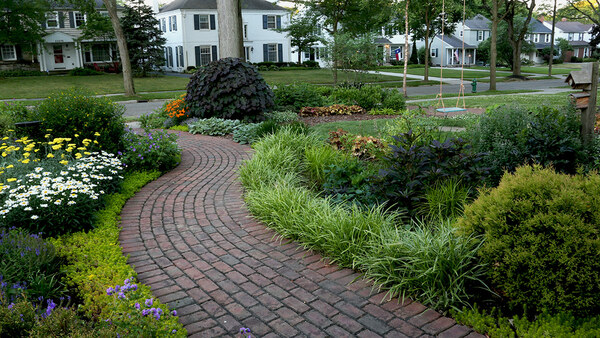
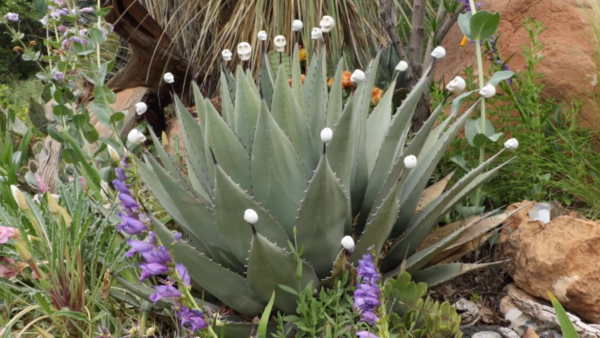







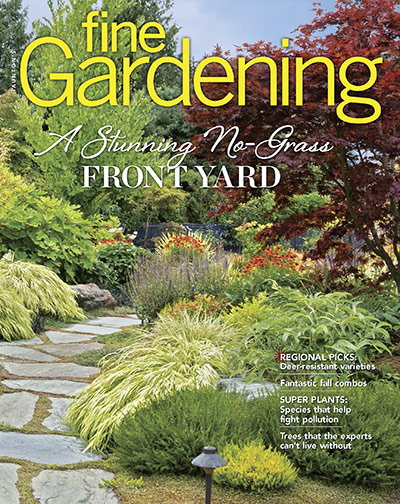
Comments
Log in or create an account to post a comment.
Sign up Log in